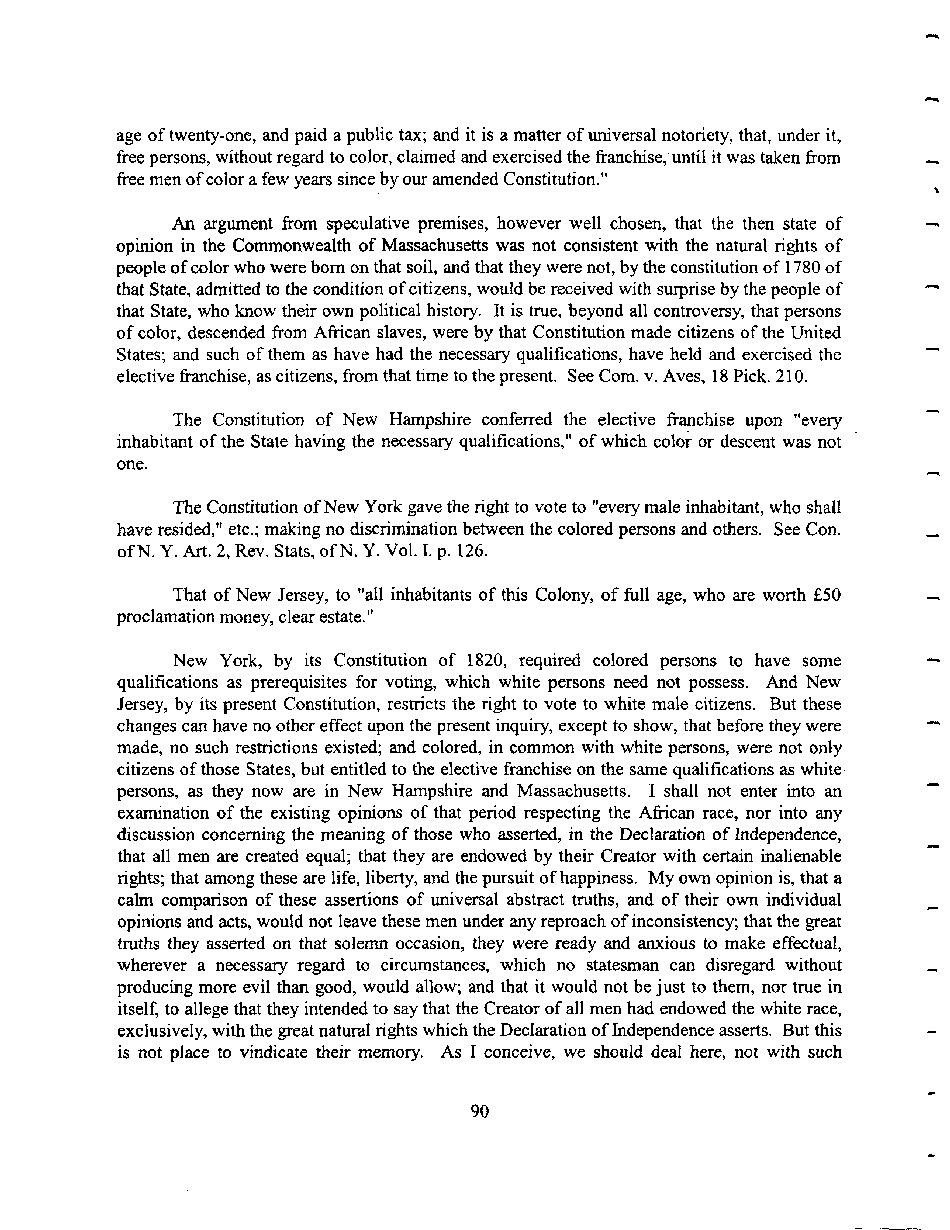|
age of twenty-one, and paid a public tax; and it is a matter of universal notoriety, that, under it,
free persons, without regard to color, claimed and exercised the franchise, until it was taken from
free men of color a few years since by our amended Constitution."
An argument from speculative premises, however well chosen, that the then state of
opinion in the Commonwealth of Massachusetts was not consistent with the natural rights of
people of color who were bom on that soil, and that they were not, by the constitution of 1780 of
that State, admitted to the condition of citizens, would be received with surprise by the people of
that State, who know their own political history. It is true, beyond all controversy, that persons
of color, descended from African slaves, were by that Constitution made citizens of the United
States; and such of them as have had the necessary qualifications, have held and exercised the
elective franchise, as citizens, from that time to the present. See Com. v. Aves, 18 Pick. 210.
The Constitution of New Hampshire conferred the elective franchise upon "every
inhabitant of the State having the necessary qualifications," of which color or descent was not
one.
The Constitution of New York gave the right to vote to "every male inhabitant, who shall
have resided," etc.; making no discrimination between the colored persons and others. See Con.
of N. Y. Art. 2, Rev. Stats, of N. Y. Vol. I. p. 126.
That of New Jersey, to "all inhabitants of this Colony, of full age, who are worth £50
proclamation money, clear estate."
New York, by its Constitution of 1820, required colored persons to have some
qualifications as prerequisites for voting, which white persons need not possess. And New
Jersey, by its present Constitution, restricts the right to vote to white male citizens. But these
changes can have no other effect upon the present inquiry, except to show, that before they were
made, no such restrictions existed; and colored, in common with white persons, were not only
citizens of those States, but entitled to the elective franchise on the same qualifications as white
persons, as they now are in New Hampshire and Massachusetts. I shall not enter into an
examination of the existing opinions of that period respecting the African race, nor into any
discussion concerning the meaning of those who asserted, in the Declaration of Independence,
that all men are created equal; that they are endowed by their Creator with certain inalienable
rights; that among these are life, liberty, and the pursuit of happiness. My own opinion is, that a
calm comparison of these assertions of universal abstract truths, and of their own individual
opinions and acts, would not leave these men under any reproach of inconsistency; that the great
truths they asserted on that solemn occasion, they were ready and anxious to make effectual,
wherever a necessary regard to circumstances, which no statesman can disregard without
producing more evil than good, would allow; and that it would not be just to them, nor true in
itself, to allege that they intended to say that the Creator of all men had endowed the white race,
exclusively, with the great natural rights which the Declaration of Independence asserts. But this
is not place to vindicate their memory. As I conceive, we should deal here, not with such
90
�
|

